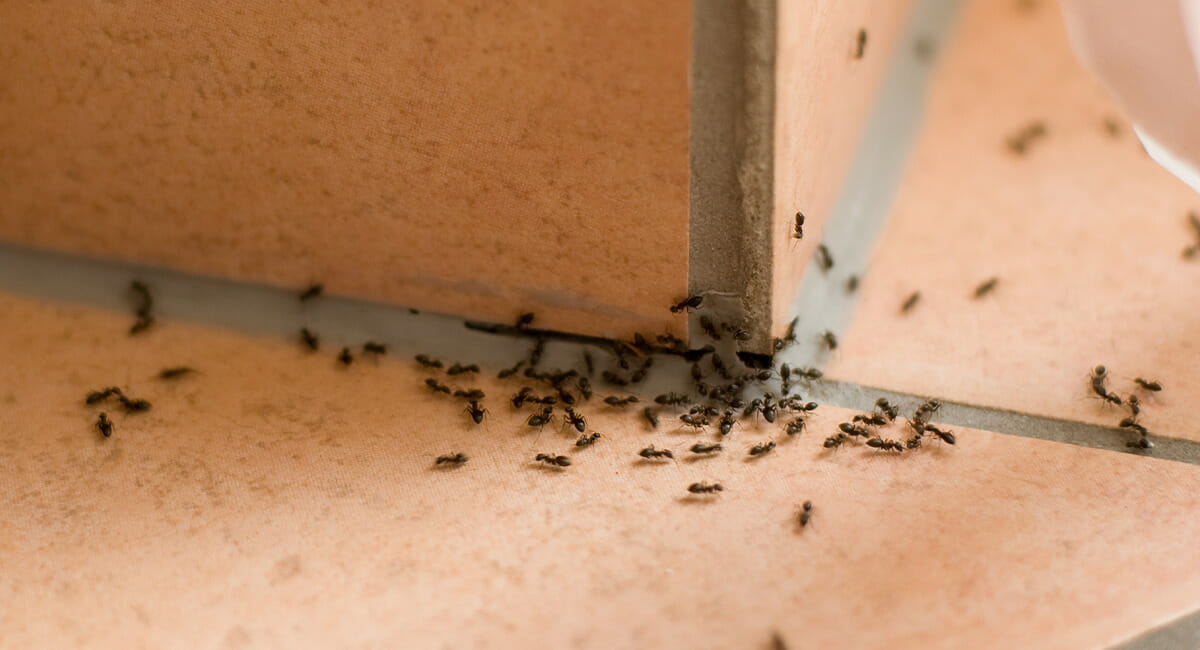What Time of Year is Ant Season?
Ants can thrive year-round, but certain months are more prone to heightened ant activity. Their behavior varies depending on the species of ant, but ants are generally most active from March to October.
Ants emerge in the spring in response to a combination of factors, including warmer temperatures and longer daylight hours. As temperatures rise, ants become more active and begin to search for food. They are also more likely to reproduce during this time, which can lead to an increase in the number of ants in a colony — and an increase of ants visible on your property.
However, that doesn’t necessarily mean those are the months when you’re more likely to see them inside your home. As temperatures drop in late fall, ants may migrate indoors to avoid harsh winter weather. Unfortunately, ants are numerous and resourceful — you can experience an ant infestation at any time, and prevention is key.


